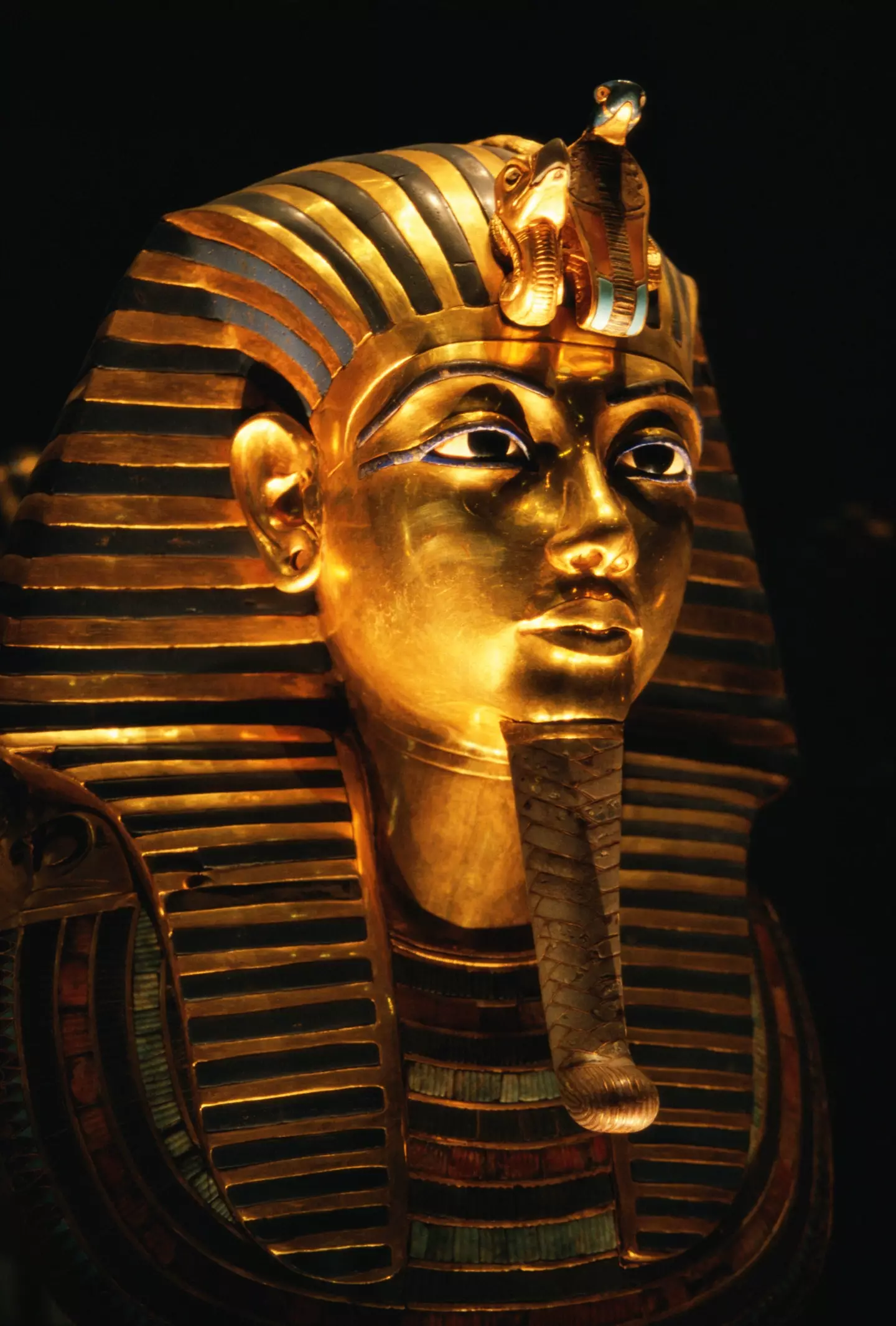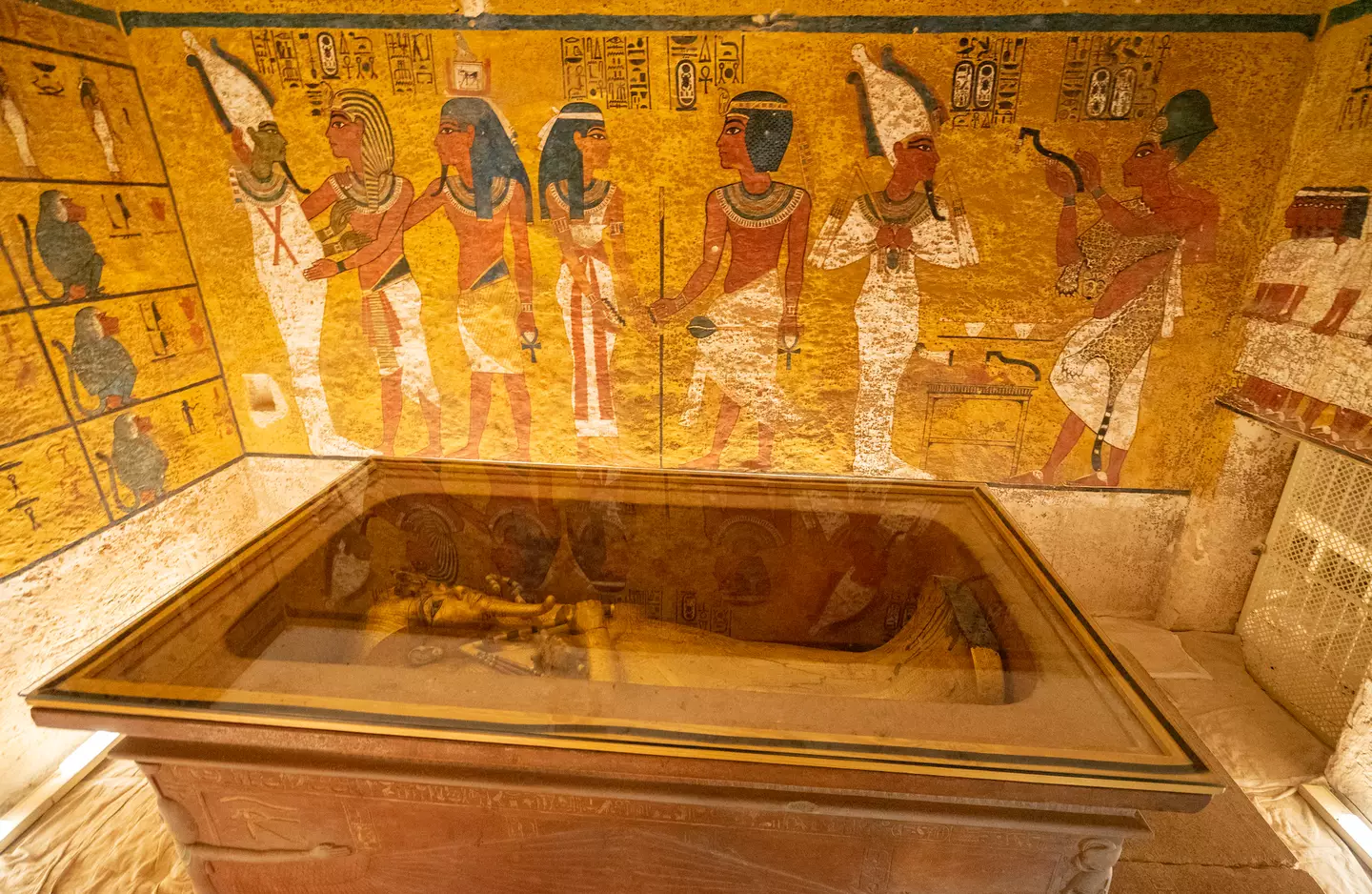A researcher has pointed out an overlooked aspect of Tutankhamun’s mask that could change what we know about the Egyptian pharaoh.
The study of ancient Egypt isn’t anything new, but historians have long been fascinated with this period of history.
The discovery of great tombs of the kings of old has seen experts attempt to piece together a greater understanding of the people and the time period.
And now, egyptology professor Joann Fletcher has explained some overlooked details regarding Tutankhamun and, she's suggested paying greater attention to it can help shed light on the ruler as well as his death.
Fletcher explained the importance of diving deeper into the history of Tutankhamun.
She said: "Tutankhamun's mask is the epitome of ancient Egypt, so very familiar, yet like so many of his treasures, it is holding a long-standing secret.

Professor Joann Fletcher has pointed out a clue in the pharaoh's mask (Getty Images)
"I've come to Oxford University's Griffith Institute to examine the most detailed records of his burial.
"Captured on delicate glass slides, these are the original negatives taken by Howard Carter's photographer at every stage of the 10-year excavation.
"They reveal Tutankhamun's burial in a way not usually seen.
"This is the most famous artefact from ancient history, the golden mask of Tutankhamun."
Fletcher explained that one detail regarding the mask has often gone overlooked, and given way to different theories regarding his death.
The professor added: “Recent research has homed in on one long-overlooked feature – and that is the decidedly pierced ears.
"It has been suggested that this mask was originally made for someone else.
"Research suggests that Tutankhamen would not have worn earrings beyond childhood.
"So by the age of 20, when he died, he would not have been portrayed with pierced ears."
Fletcher argued the mask may have initially been intended for someone else and suggested this may have meant that the pharaoh died in unsuspected circumstances.
Archaeologists have also documented blotches of paint on the wall that suggested it hadn't dried when the tomb was quickly sealed. They've also questioned the small size of the tomb.

There is still debate over how the pharaoh died (Getty Images)
This has strengthened some ideas around the possibility of him being murdered.
However, most historians have their doubts about this scenario. Many believe the pharaoh died from some illnesses, as it is believed he suffered from a series of health issues, including a club foot, cleft palate, bone disease, and scoliosis.
Fletcher added: "This mask was not made for an adult male pharaoh – when the gold was compared, [they found] the face is made of completely different gold to the rest.
"Evidence of soldering is clearly visible on the mask.
"It now seems as if Tutankhamun's own face was effectively grafted onto the mask of the previous ruler.
"They may have had pierced ears, they may have been a woman, it may well have been Nefertiti, [Tutankhamun’s mother].”
Queen Nefertiti's tomb or body has never been discovered.
Featured Image Credit: Frédéric Soltan/Corbis via Getty Images/MOHAMED EL-SHAHED/AFP via Getty Images

/cdn.vox-cdn.com/uploads/chorus_asset/file/25757456/1448234892.jpg)

/cdn.vox-cdn.com/uploads/chorus_asset/file/25606861/STK445_ADVERTISING_STK093_GOOGLE_B.jpg)
)





/cdn.vox-cdn.com/uploads/chorus_asset/file/24016886/STK093_Google_03.jpg)








 English (US) ·
English (US) ·